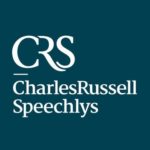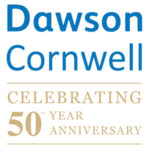Continue reading "International pensions: Running out of options"
International pensions: Running out of options


Continue reading "International pensions: Running out of options"

Continue reading "Divorce: A matter of trust"

Continue reading "Pensions: Off limits"
HN (the wife) married AN (the husband) on 30 September 2001. In July 2000 they had chosen a property known as Brooklands Farm (Brooklands) to be their future matrimonial home; it had been purchased in July 2000 for £725,000 by a Bahamian company called WP Ltd, which was owned by a Guernsey trust called the F Trust.
The F Trust was created on behalf of AN’s grandparents by a trust deed dated 19 January 1989. In 1998 various beneficiaries had received distributions in satisfaction of their respective entitlements and from this date only AN remained a beneficiary. In July 2000...

Continue reading "Trusts: Available assets"

Continue reading "Nuptial Settlements: Break it up"
In 2000 Li Quan (the wife) created a charity called Save China’s Tigers. In 2002 her husband Stuart Bray (the husband) established a fully discretionary trust in Mauritius called the Chinese Tigers South Africa Trust (CTSAT) – the sole beneficiary of which was the charity.
In July 2012 the wife was removed as a director of the charity and in August 2012 she filed for divorce and made no mention of the trust. On 17 July 2013 she filed an application by way of amendment to her form A seeking a variation of the post nuptial settlement. The core of her case being that CTSAT was ...
This was an application for ancillary relief following the wife’s divorce petition of October 2012, upon which decree nisi was pronounced on 17 April 2013. At the time of these proceedings the wife was 44 years of age, and the husband was 41. On paper, the husband had almost no assets and a modest income. However, the husband came from a family of great wealth with substantial lands in Pembrokeshire which they had owned for generations. His financial security was therefore absolutely assured.
The wife and the husband had first met in 1999. They had married in February 200...
A post-nuptial settlement (being a Jersey discretionary trust) was created by a husband and wife in 1986. The trust owns a Liberian company, which in turn owns a UK company that owns two UK companies. The main company assets are two UK retirement villages. The beneficiaries included the husband and wife and two minor children.
During divorce proceedings the wife applied for a variation of the settlement.
Over the course of proceedings the trustees of the Jersey trust and the companies were all joined as parties. In both cases no application was made for joinder and no not...